
Two practical use cases of AI in organizational development
Artificial intelligence (or AI) is one of those pesky terms that’s difficult to avoid no matter where you go. All you have to do is attend a meeting, browse through your LinkedIn feed, or even walk past the office water cooler — and someone’s sure to mention it.
The problem is that most of these day-to-day discussions about AI are anything but practical. In fact, they typically represent this far-off future where artificial intelligence does our grocery shopping for us and the AI overlords have taken over 40% of our jobs.
But today, we’re here to talk about something much more timely. And that something is the two very concrete ways in which our customers are already using artificial intelligence in their organizational development initiatives.
Use case 1: Quickly making sense of huge volumes of dialogue
Up until now, organizational development practitioners, facilitators, and external consultants have struggled to engage all the employees of large organizations in important development initiatives. Take new business strategy, a merger, an acquisition, or organizational restructuring, for example.
On the one hand, facilitators are faced with the irrefutable fact that when employees are invested in change, it’s 30% more likely to stick.
On the other hand, how in the world are you supposed to convince hundreds — if not thousands — of people that your organizational transformation initiative is worth their time and (emotional) investment? Especially if you’re working with limited resources, this may seem like an unsolvable equation.
So far, the best thing that external facilitators and internal change agents have been able to do is to make sure that everyone in the organization understands why the change initiative is taking place and what the justifications for important decisions are.
However, as Brent Gleeson points out, top-down communication simply isn’t enough. You’ll also want to gather, listen to, and act upon insights and feedback throughout the change journey.
This is particularly important in knowledge-intensive organizations where employees are in close contact with customers. After all, how could the business possibly be developed into the right direction without the insights of these people in the front lines?
The easy part, of course, is gathering insights. The problem arises when you’ve been lucky enough to get lots of it.
And that’s exactly where Howspace AI has come in handy for our customers. By using one centralized platform for collaborating on and communicating about their change initiatives, our customers have been able to:
1. Save a full day’s worth of manual work every time they’ve wanted to dive deeper into a specific theme or topic.
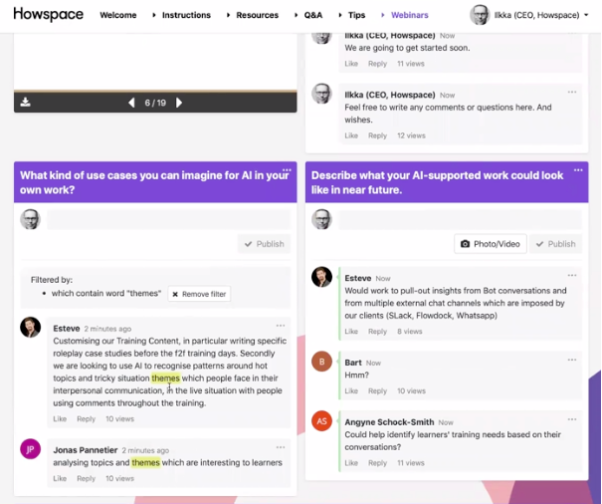
2. Cluster the participants’ comments into meaningful categories. Howspace AI’s natural language processing capabilities recognize synonyms and relationships between concepts.
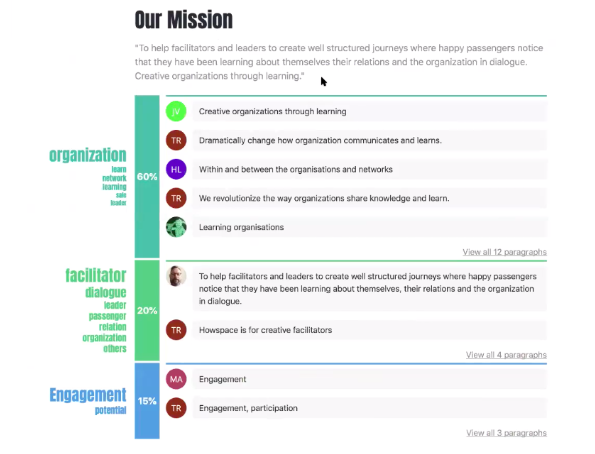
3. Summarize the most frequently appearing sentiments into a few sentences, which the facilitator can then clean up if needed.
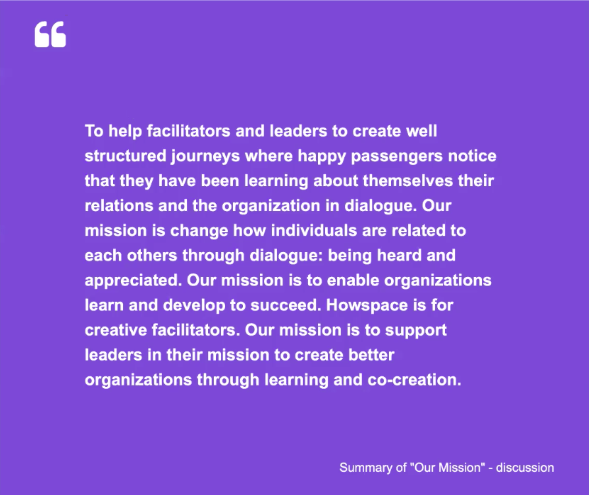
So far, our customers have reported three kinds of benefits from their early experiments with Howspace AI:
- The ability to truly engage with the whole organization. As Organizational Consultant Olli-Pekka Juoperi likes to say: “It’s not really co-creation unless you actually listen to what the participants have to say.” Before AI, this was practically impossible.
- Substantial time-saving. By using Howspace and especially its AI capabilities, our customers have been able to automate the tedious and manual process of sorting through dozens of pages of dialogue. On average, our customers report that they save a full working day every time they use Howspace AI.
- Avoiding personal bias. The problem with human facilitators is that they’re… Well, human. And it’s no secret that people approach data analysis from their unique perspectives. By letting AI do the early clustering for you, our customers have reported that they’ve been able to focus on what the participants find important rather than letting their own perspectives guide the analysis.
Use case 2: Moving from reporting to continuous development
The other common use case of AI relates to the collection and use of the dialogue that’s born as a result of a change initiative.
Before collaborative platforms like Howspace were created, facilitators were forced to spend time on trying to come up with a definitive report on the success of a past change initiative.
What’s evolved from those days is the pace of change. Along with it, businesses are expected to react to changes in their environment a lot faster. And as a result organizational change and development processes are no longer seen as one-and-done activities, but rather ongoing processes to which every member of the organization can — and should — contribute.
And because AI allows the facilitator to make sense of large masses of dialogue in real time, there’s no longer a need for separate reports.
Instead, the platform can be used to support real-time decision-making. Additionally, snapshots from the ongoing dialogue can be pulled out whenever necessary.
While it’s true that this use case of AI might require a slight mindset shift from traditional reporting towards agile decision-making, we can already see that this is where most organizations are headed.
Sure, the mindset shift may not happen overnight, but by investing in the necessary technology already, you’ll be one step closer to realizing the benefits
In closing
The next time you hear someone mention artificial intelligence in a meeting, at the watercooler, or social media, wouldn’t it be nice if you could chime in with your own experiences?
You might be interested in these as well
View all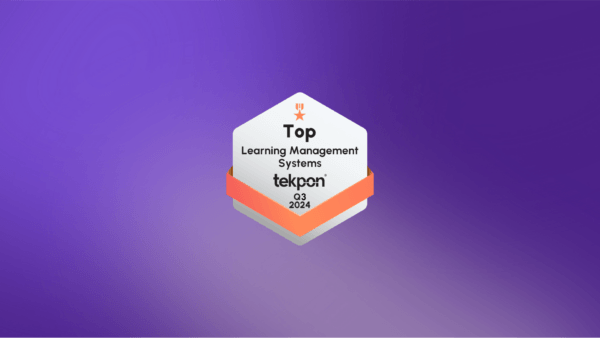
Howspace included in Top Learning Management Systems for Businesses list for 2024 by Tekpon
Tekpon listed Howspace as one of the top software for learning management in 2024.
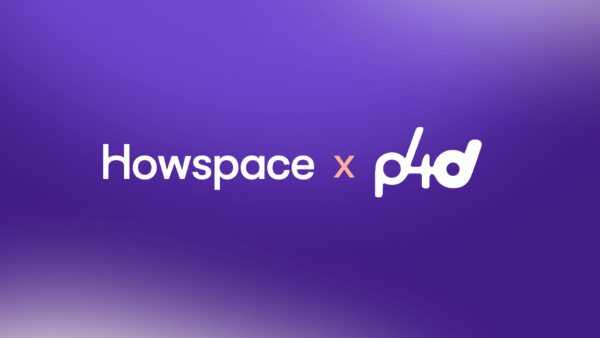
p4d consulting firm enters strategic partnership with Howspace
p4d partners with Howspace to support businesses and organizations in organizational development and change.
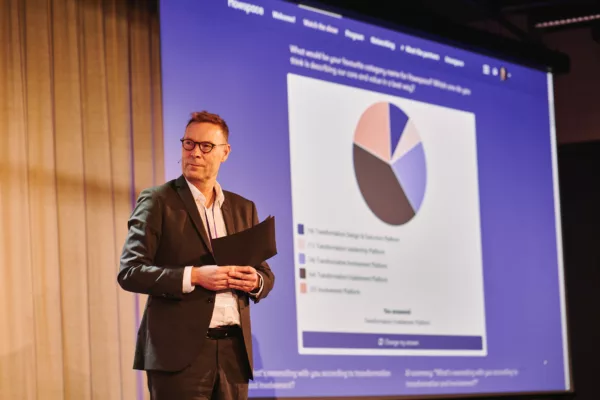
Designing for change: From mere participation to transformative involvement
Howspace’s CEO Ilkka Mäkitalo will take us through the philosophy behind the platform and how it will set a new standard for transformative involvement.